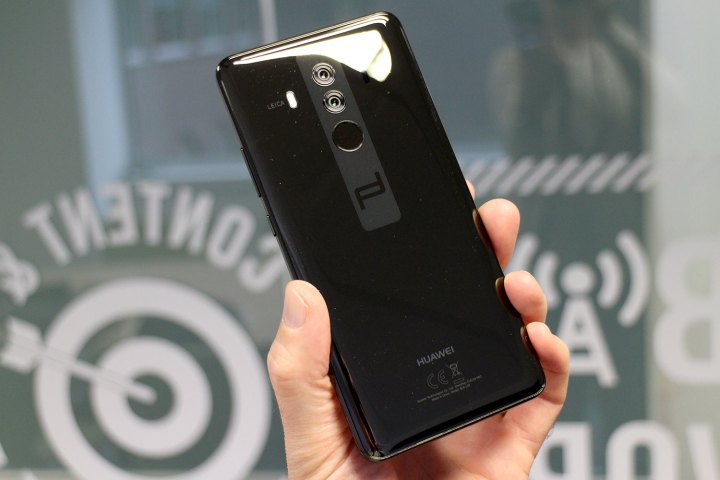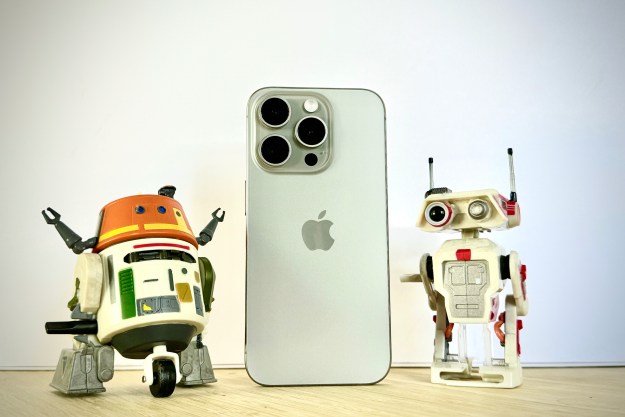The U.S. government and its agencies are warning against using devices made by Huawei and ZTE, claiming they may represent a security threat. Here’s what you need to know about the developing story.
Sales stopped at military bases
Devices made by Huawei and ZTE are no longer being sold at stores on U.S. military bases, according to the U.S. Department of Defense, which claims the phones and modems may present a security risk. The decision came on April 25. Pentagon spokesman Major Dave Eastburn said the hardware “may pose an unacceptable risk to the department’s personnel, and mission,” in a statement to Reuters.
The sales stoppage comes after warnings over security from U.S. intelligence agencies, which resulted in Huawei further distancing itself from the United States, and a ban on U.S. companies selling equipment to ZTE. The U.K. has also said it will not use ZTE equipment, due to added work pressure on the department monitoring Huawei equipment used in the country.
Security risks
While Huawei has faced similar perception problems in the U.S. before, the Senate Intelligence Committee in February brought considerable attention to the firm. Top officials from major U.S. intelligence agencies including the CIA, the FBI, and the National Security Agency (NSA) suggested people should not use devices made by Chinese manufacturers Huawei or ZTE. The agency chiefs said they had “deep concerns,” over potential security risks claimed to come from using telecoms devices made by companies “beholden to foreign governments.”
The annual hearing is where threats to the United States from around the world are discussed. Cybersecurity and the use of technology in espionage repeatedly permeated the discussion. Director of National Intelligence Dan Coats made the opening remarks. He said the United States is under attack from “entities using cyber to penetrate virtually every major action that takes place in the United States,” and called cyber threats one of his greatest concerns and top priorities. Coats singled out Russia, China, Iran, and North Korea as posing the greatest threats.
Play by the rules
The Senate Intelligence Committee chairman, Republican senator Richard Burr of North Carolina, said, “The focus of my concern today is China, and specifically Chinese telecoms companies like Huawei and ZTE that are widely understood to have extraordinary ties to the Chinese government.” Burr has been a longtime opponent of Huawei and other Chinese telecoms companies in the United States, dating back to at least 2010 when he and other senators advocated blocking Sprint from using Huawei infrastructure in its network.
Burr asked numerous officials to share their thoughts. CNBC reports that six individuals said they would not recommend private citizens use products from Huawei or ZTE. Reuters reported that when questioned, the intelligence officials said they personally would not use a Huawei or ZTE product. In the South China Morning Post, it’s stated that Republican Senator Tom Cotton of Arkansas asked officials if they would recommend purchasing a Huawei or ZTE product, and none raised their hand.
Democratic Senator Mark Warner of Virginia identified Huawei and ZTE as “leading market players globally,” and added: “Most Americans have not heard of all of these companies. But as they enter Western economic markets, we want to ensure they play by the rules. We need to makes sure that this is not a new way for China to gain access to sensitive technology.” Concern over the possible security implications of Chinese smartphones and telecoms equipment is not new, and debate previously raged in 2012.
No risk
In a statement given to CNBC, Huawei said: “Huawei is aware of a range of U.S. government activities seemingly aimed at inhibiting Huawei’s business in the U.S. market. Huawei is trusted by governments and customers in 170 countries worldwide and poses no greater cybersecurity risk than any ICT vendor, sharing as we do common global supply chains and production capabilities.”
ZTE USA told Digital Trends in an official statement: “ZTE is proud of the innovation and security of our products in the U.S. market. As a publicly traded company, we are committed to adhering to all applicable laws and regulations of the United States, working with carriers to pass strict testing protocols, and adhering to the highest business standards. Our mobile phones and other devices incorporate U.S.-made chipsets, U.S.-made operating systems and other components. ZTE takes cybersecurity and privacy seriously and remains a trusted partner to our U.S. suppliers, U.S. customers, and the people who use our high quality and affordable products for their communications needs.”
Both Huawei and ZTE sell smartphones and other connected devices in the United States, but neither are widely known. Huawei attempted to change this with the Mate 10 Pro smartphone and a deal with AT&T and Verizon, where the device would be sold through the carriers. However, the AT&T deal fell through before it could be announced, and Verizon is also rumored to have pulled out, each potentially due to political pressure.
Updated on May 3: Added in news of Huawei and ZTE devices no longer being sold on military bases.





